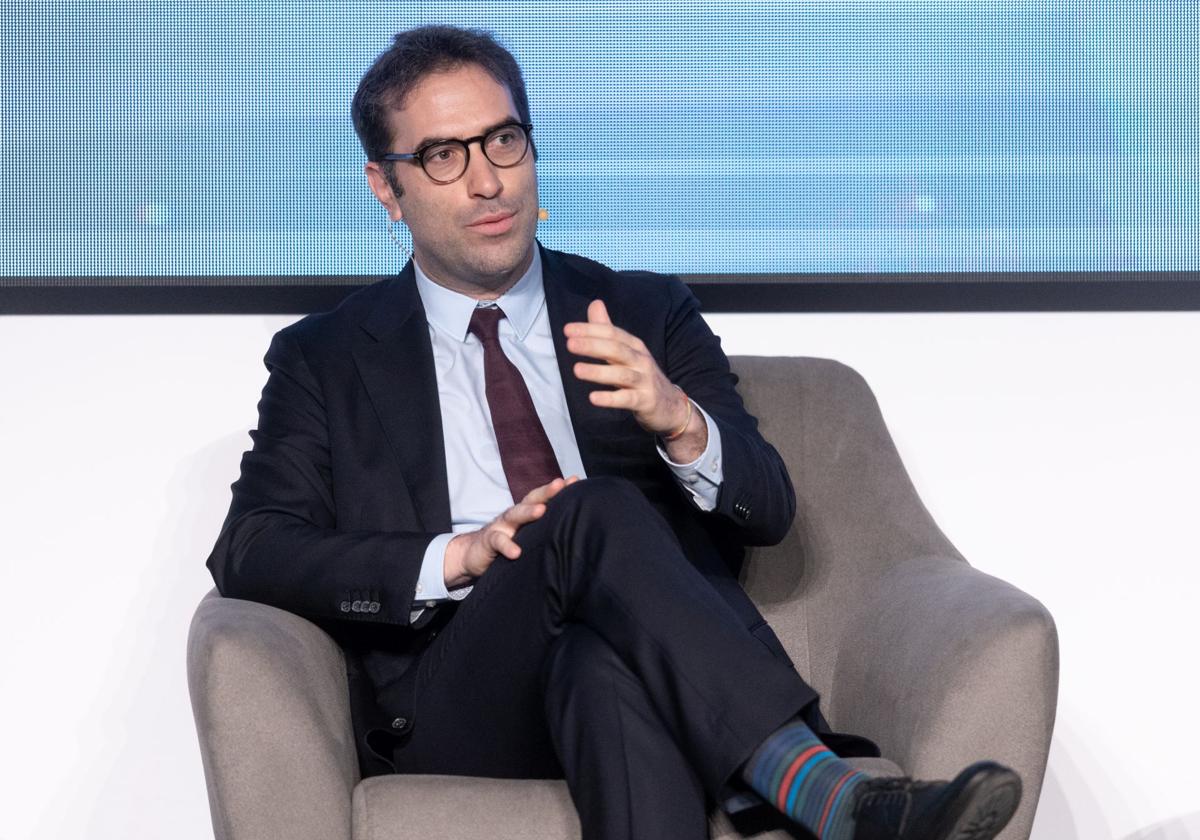Third time unlucky
It's the third time that Spain has tried to install its finance minister as president of the Eurogroup
Mark Nayler
Friday, 11 July 2025, 11:39
Up until Monday afternoon, economy minister Carlos Cuerpo was in the race to become the next president of the Eurogroup. Consisting of the finance ministers of the twenty countries that use the euro, the Eurogroup has been under the presidency of Ireland's Paschal Donohoe, a member of the centre-right Fin Gael party, since 2020. Cuerpo was contesting the position along with another leftist candidate, Lithuania's Rimantas Šadžius, both of whom favour a more radical approach than has so far been taken by the Irishman.
Hours before the vote on Monday evening, Cuerpo and Šadžius withdrew their campaigns, citing lack of support among their fellow finance ministers, most of whom represent centre-right parties. Donohoe will thus hold onto the position for another two-and-a-half years.
The renewal of Donohoe's mandate comes at a time when many EU members, especially those with centre-left governments, are calling for greater integration. Cuerpo's failure to become president means that Spain won't have the opportunity to lead campaigns for mutual debt structuring, or a European army funded by common defence bonds. But it still has clout as a member of the Eurogroup, and Donohoe isn't necessarily averse to such ideas: in the early days of the pandemic, he advocated for the issuance of eurozone bonds to create a recovery fund - very similar to the mechanism used in the Next Generation scheme. According to Šadžius, Ireland's finance minister will face "big pressure from all sides to be more dynamic and focused".
It's the third time that Spain has tried to install its finance minister as president of the Eurogroup. The PP's Luis de Guindos lost out in 2015 (although he went on to the Vice Presidency of the European Central Bank); and, despite the backing of France and Germany, the Socialists' Nadia Calviño was unsuccessful in 2020 (but now heads up the European Investment Bank). In both cases, the elevation of a Spanish minister to this powerful position was seen in Madrid as crucial to enhancing the country's influence within Europe, and bolstering the credibility of its government. Had Cuerpo succeeded where his predecessors failed, it would have been a tremendous boost for a coalition mired in scandal, unable to pass budgets and slavishly reliant on tyrannical separatists.
Still, one hopes that Pedro Sánchez heard what Cuerpo had to say about withdrawing from the race. To "avoid fragmentation" and because it was "better for the Eurogroup", he decided to "step aside in the exercise of responsibility". Lack of support, both among the electorate and within congress (and even within the coalition itself) seems to have had the opposite effect on Cuerpo's boss, who has opted to carry on regardless. Perhaps Sánchez could learn a lesson from his modest economy minister.

Comentar es una ventaja exclusiva para registrados
¿Ya eres registrado?
Inicia sesiónNecesitas ser suscriptor para poder responder.
Necesitas ser suscriptor para poder votar.